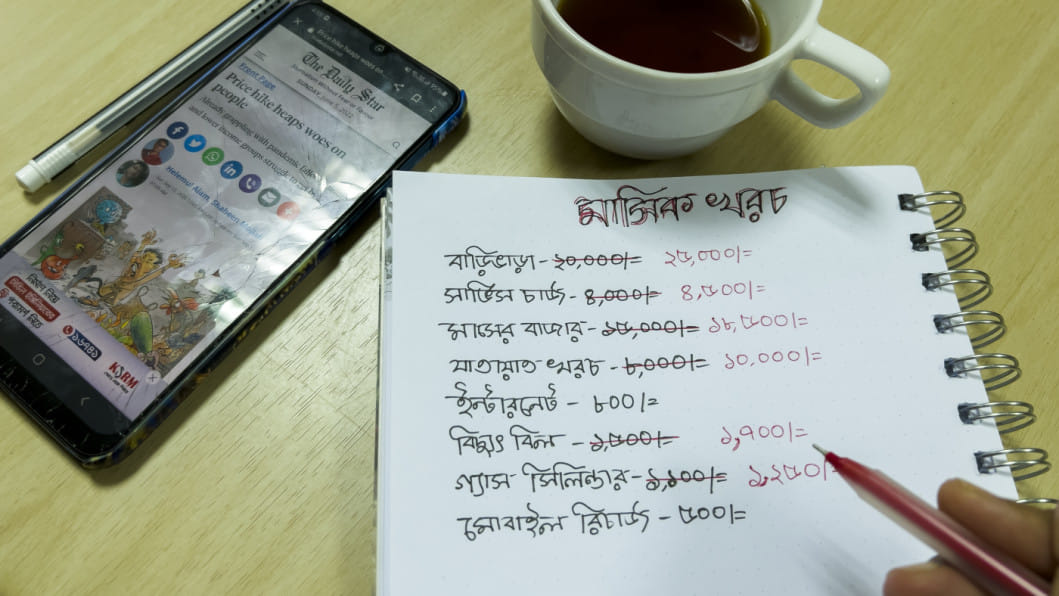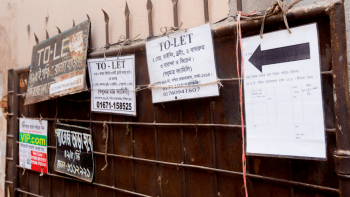How are students dealing with rising prices in Dhaka city?

Living in a city as volatile in regards to economic fluctuations and living conditions as Dhaka has never been easy, especially when one's a student living on their own.
In a place where it's difficult to live decently even on a conventionally middle-class income, being a student with limited finances is quite the challenge when one factors in the recent price hike.
If you're currently a non-residential student in the city, you've probably encountered a spike in rent already, whether you're living in a shared flat or have a place to yourself. Even as residential students, related expenses have been high for many.
"My hostel rent went from 8000 taka to 9000 taka quite abruptly this month, but the quality of food and other facilities are still below standard," commented Rue Ahmad, an grade 11 student at Rajuk Uttara Model College, currently living at the campus hostel.
However, living expenses are only the tip of the iceberg. For most of us, the main concern is the consistent steep increase in transportation costs and food prices as being quotidian expenditures; these add up to a substantial number when one's maintaining a strict budget. Although public transportation rates keep rising exponentially, we can do nothing but cope as ride-sharing options on the daily are way too costly, and the utter lack of pedestrian-friendly roads in this city make it almost impossible to walk.
Traffic being worse than ever, CNG drivers and rickshaw pullers now have another excuse to ask for extra money to compensate for their lost time. While their concern is valid, the commute gets more stressful every day. Some days it is better to not go out if we don't have any errands. Again, limiting our movement that is not "necessary".
The current prices of food items have already had hard-hitting effects on us, causing many to change their eating habits. At this point, the price of takeaway food and groceries are almost the same and it is especially hard on those who don't practice or are bad at bargaining. Cutting down on food allocations and switching to eating more frequently at hostel cafeterias, despite its terrible quality of food, are pretty common scenarios now as the absurd prices of vegetables, poultry, and grains make it difficult for many to afford cooking by themselves everyday anymore.
"We had to request our cook to use a lesser amount of oil for cooking as its price has risen tremendously. My flatmates and I have even reduced the number of dishes we consume per meal to save money," mentioned a student of IBA, DU who wished to remain anonymous, when asked about the compromises they're having to make.
Moreover, since even big scale sacrifices are not enough to make life a little easier as a student surviving solo, most of us have now habituated ourselves into letting go of the recreational activities vital for the wellbeing of our mental health, just for the sake of saving a few bucks.
Over the course of the past few months, I have had to cut expenses that are not "essential". For example, I haven't bought any books in the last two months, even though I am a vociferous reader. Other little postponed things include, but are not limited to, taking random rickshaw rides, trying out new cafés, and buying flowers for ourselves. These seem too insignificant to even mention in the grand scheme of things, but leaving out all the tenderness and stripping life down to the bare minimum certainly takes a toll on our minds.
Last year, during a conversation with a close friend who lives abroad, the topic of saving came up. At the time, we were living paycheck to paycheck. It was difficult to explain even then. And now, saving up for something seems like a very distant prospect.
At this point, we have more or less accepted the price hike. On this topic, the story about the boiling frog comes to mind. Once, a frog was sitting in a pot on a stove, and did not realise that the water was boiling until it became so hot that the frog could not jump back out.
Living in Dhaka and dealing with the cost of living is a parallel real-world example of the boiling frog story. Except, it was predictable and preventable. Living in this city, alone, as a student, was quite hectic even before. But now, with the unbearable heat, the traffic and pollution, and the latest hikes in prices, our living conditions and mental health are suffering greatly, if not perishing already.
Shimin reads everything she can find, talks to cats, and writes a lot of letters. Send her a book at [email protected]
Hamama's problems smell like daruchini because she's dweep into them 24/7. Send help at [email protected]

 For all latest news, follow The Daily Star's Google News channel.
For all latest news, follow The Daily Star's Google News channel. 









Comments